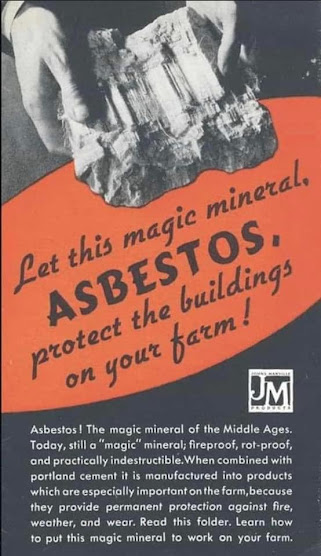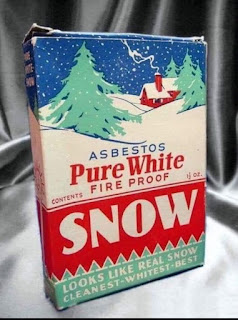And they are right about it's benefits.
I can provide you years and years of vital service.
Oh. Don't break it up at all, with demo or whatever. Or cut it with a saw. If it does weather don't mess with the dust that sloughs off If it gets airborne, and it likes to... yeah avoid that airborne dust. You can see it in a sunbeam, and it stays in the air a good long time. The stuff is not perfectly safe. That stuff is mesotheliomaocious. Shame, too. And airborne is pretty much what this is, from the jump:
Lead paint is also perfectly fine. For a few years. Until it starts to break down, too. Then any quantity of that is bad around you.
DDT is safer than both of those. Might be a good idea to avoid deploying it in agricultural quantities.


DDT is perfectly safe for mammals in any reasonable quantity. You can pour it on your morning cereal. The problem is that it is way, way too effective in killing off invertebrates, which are at the base of the food chain for lots of critters.
ReplyDeleteAsbestos is perfectly safe as long as it's not airborne. Every removal technique involves making it airborne. It's easier, cheaper, and safer to spray it down with a sort of lacquer. Unfortunately, lacquer is generally not fire resistant. (I remember being in a Navy facility back in the 80's where they were removing the asbestos. The techs were in moon suits. We students and faculty weren't even given masks. You couldn't see the far end of the hallways for all the yellow dust.)
Killed Steve McQueen.
ReplyDeleteMy uncle worked at a utility company that had lots of it at their warehouse. Said they used to have snowball fights with the stuff, c. 50's-60's. Died in his early 50's, with 7 kids at home. Nasty death. Kidney died, lung, and got to his bones.